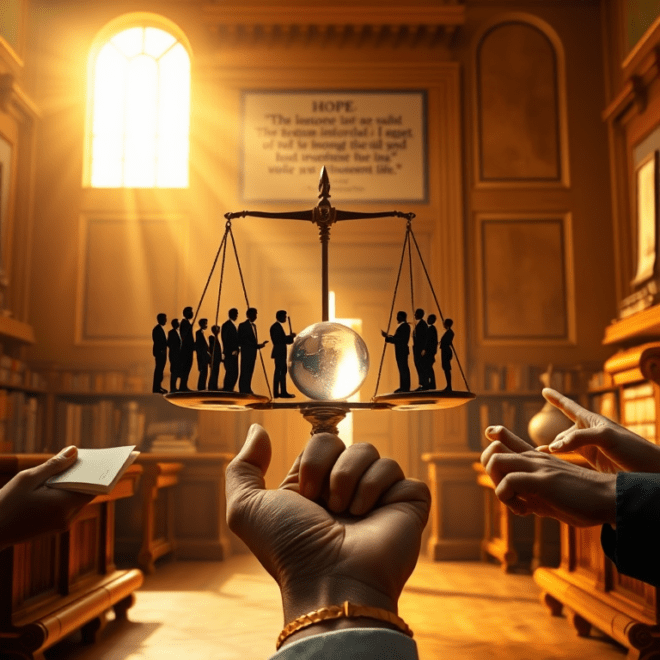
Introduction
As I take a moment to reflect on the current state of our criminal justice system, a profound sense of concern washes over me. The wisdom of Sir William Blackstone, encapsulated in his enduring quote, “It is better that ten guilty persons go free than one innocent suffer,” resonates with alarming clarity in our contemporary landscape. Each day, we are confronted with heart-wrenching stories of individuals wrongfully convicted or coerced into pleading guilty to crimes they did not commit. In this complex legal milieu, the emotional and psychological burdens placed on defendants appear to intensify, raising critical questions about the integrity and fairness of our justice system.
The Emotional Toll of Pleading Guilty
When individuals find themselves ensnared in the web of criminal charges, the pressure to make decisions can be utterly overwhelming. Some may resolutely declare, “I won’t plead guilty to a crime I didn’t commit,” while others, paralyzed by fear and uncertainty, may feel they have no viable option but to accept a plea deal. This dilemma transcends mere legal considerations; it is fundamentally a human issue. The emotional turmoil associated with such decisions can inflict lasting trauma—not only on the defendants themselves but also on their families and communities.
The psychological impact of navigating this treacherous landscape can lead to feelings of hopelessness, despair, and isolation. The anguish of potentially sacrificing one’s principles for the sake of expediency can haunt individuals long after the legal proceedings have concluded. The human cost of coercive plea bargaining is staggering, and it is imperative that we recognize the profound implications of these choices on the lives of those affected.
The Reality of Coercive Plea Deals
One of the most disconcerting realities of our criminal justice system today is the alarming prevalence of coercive plea deals. It is a stark and sobering statistic that over 95% of felony convictions in the United States are the result of plea bargains. In this environment, prosecutors often wield the threat of severe penalties as a weapon to pressure defendants into admitting guilt, even when their innocence is undeniable. This coercive atmosphere creates insurmountable obstacles for individuals seeking to assert their rights and mount a defence.
Consider the heartbreaking reality faced by countless innocent individuals who, overwhelmed by the prospect of a lengthy and uncertain trial, feel compelled to plead guilty simply to escape the harrowing unknown. The very essence of justice appears to be undermined when the fear of a harsher sentence looms larger than the pursuit of truth. This troubling trend raises urgent questions about the integrity of our legal system. If we continue to perpetuate this cycle, how many more innocent lives will be irreparably altered?
The Importance of Legal Counsel
This brings us to another critical area of concern: the role of legal counsel in the criminal justice process. The necessity of competent legal representation cannot be overstated, yet many defendants find themselves grappling with the stark reality of inadequate access to legal support. In many cases, individuals are required to plead guilty before even having the opportunity to review the evidence against them. This precarious situation places defendants in an untenable position, forcing them to make life-altering decisions without a comprehensive understanding of the implications.
Imagine standing accused of a crime, navigating a labyrinthine legal system without the benefit of sound legal advice. The anxiety and trepidation accompanying such an experience are palpable, and the lack of transparency only exacerbates the stress and uncertainty faced by defendants. It is imperative that we advocate for reforms that ensure equitable access to legal counsel for all individuals, regardless of their socioeconomic status.
The Need for Systemic Change
As we grapple with these pressing issues, a sense of urgency for systemic change emerges. Numerous organisations dedicated to criminal justice reform are tirelessly working to address these pervasive problems, yet the road ahead remains fraught with challenges. The trial penalty, a grim reality that disproportionately affects the most vulnerable, must be abolished. We must strive to create a legal environment that prioritises the protection of the innocent and fosters a culture of fairness and transparency.
It is essential that we unite in our advocacy for reforms that guarantee everyone the right to fair legal representation and the opportunity to make informed decisions about their cases. We must reaffirm our commitment to the presumption of innocence, ensuring that this foundational principle is upheld at every juncture of the legal process. The time has come to challenge the status quo and demand a justice system that genuinely reflects our values and principles.
Conclusion
In closing, I find myself increasingly troubled by the state of justice in our society. The insights of Blackstone serve as a poignant reminder of the paramount importance of safeguarding the innocent. Yet, the harsh realities of our criminal justice system often seem to stand in stark opposition to this ideal. As we navigate the complexities of this landscape, it is crucial that we maintain a vigilant commitment to justice, advocating for reforms that prioritise fairness and integrity.
We must collectively endeavour to ensure that the scales of justice remain balanced, affording every individual the rights and protections they so rightfully deserve. While the task ahead may seem daunting, it is one worth pursuing with unwavering resolve. Together, we can strive for a justice system that not only honours the principle that it is better to free ten guilty individuals than to condemn one innocent soul but also embodies the ideals of equity, transparency, and humanity that we hold dear. The stakes are too high for us to do anything less.



